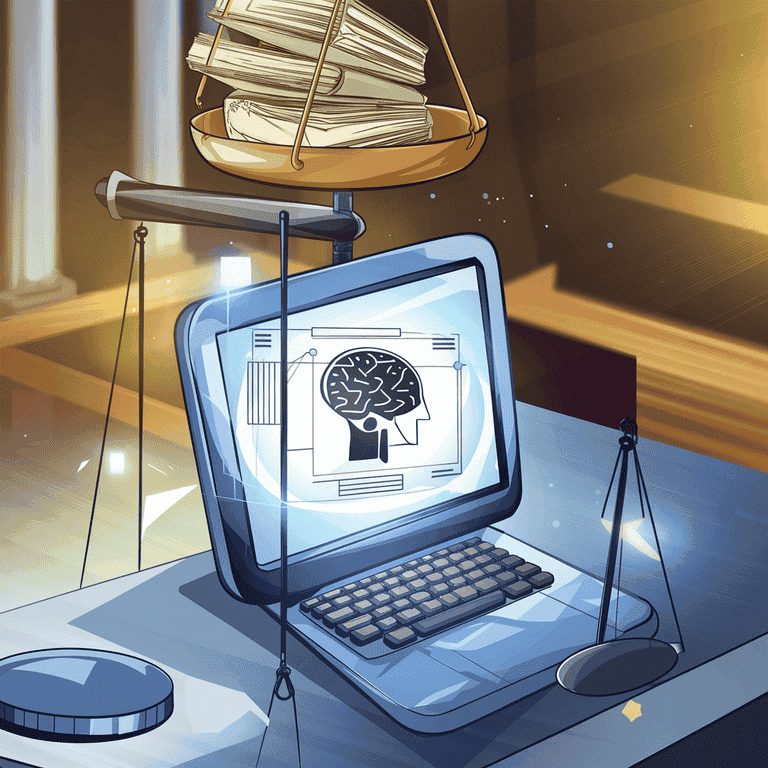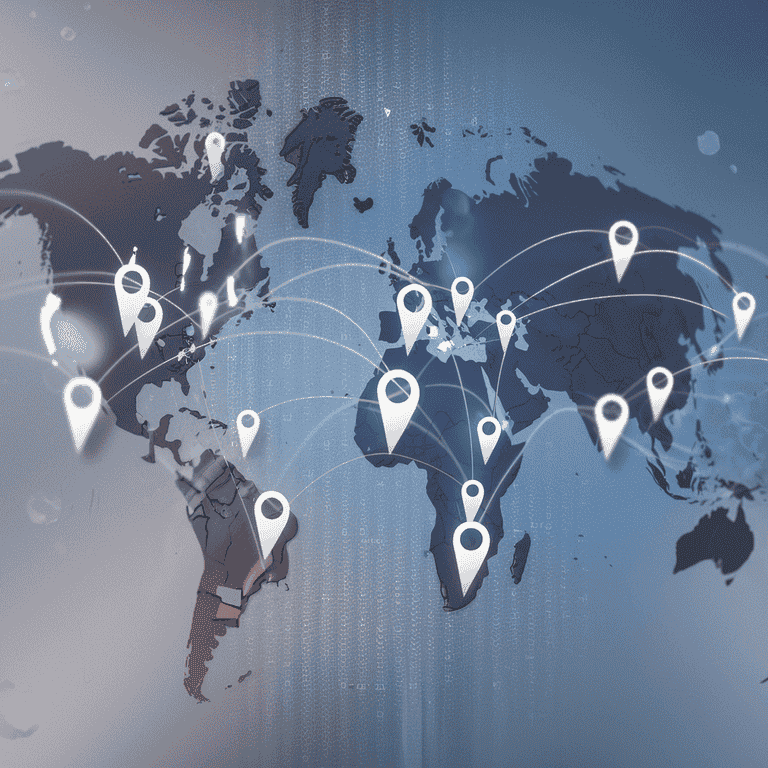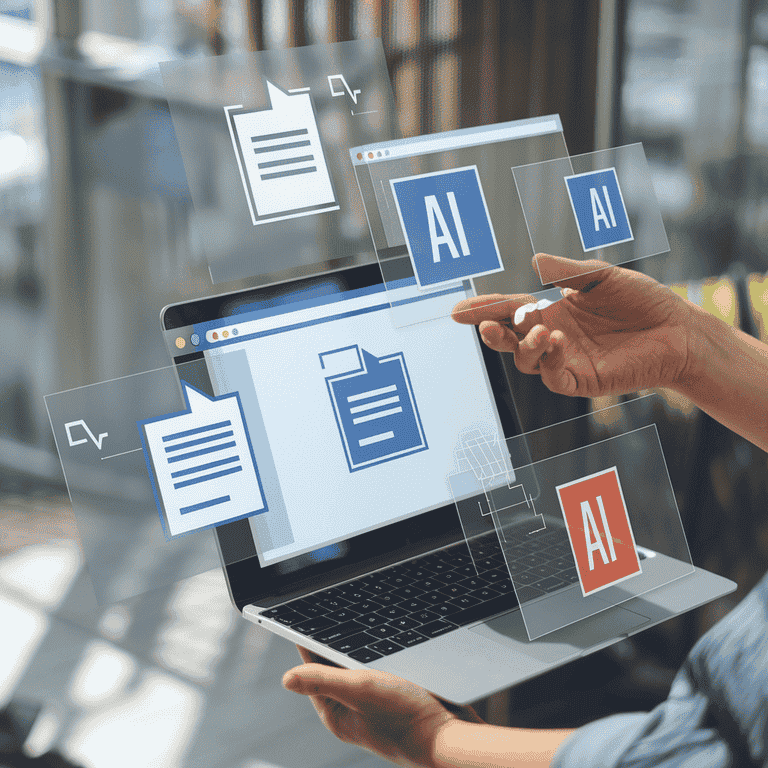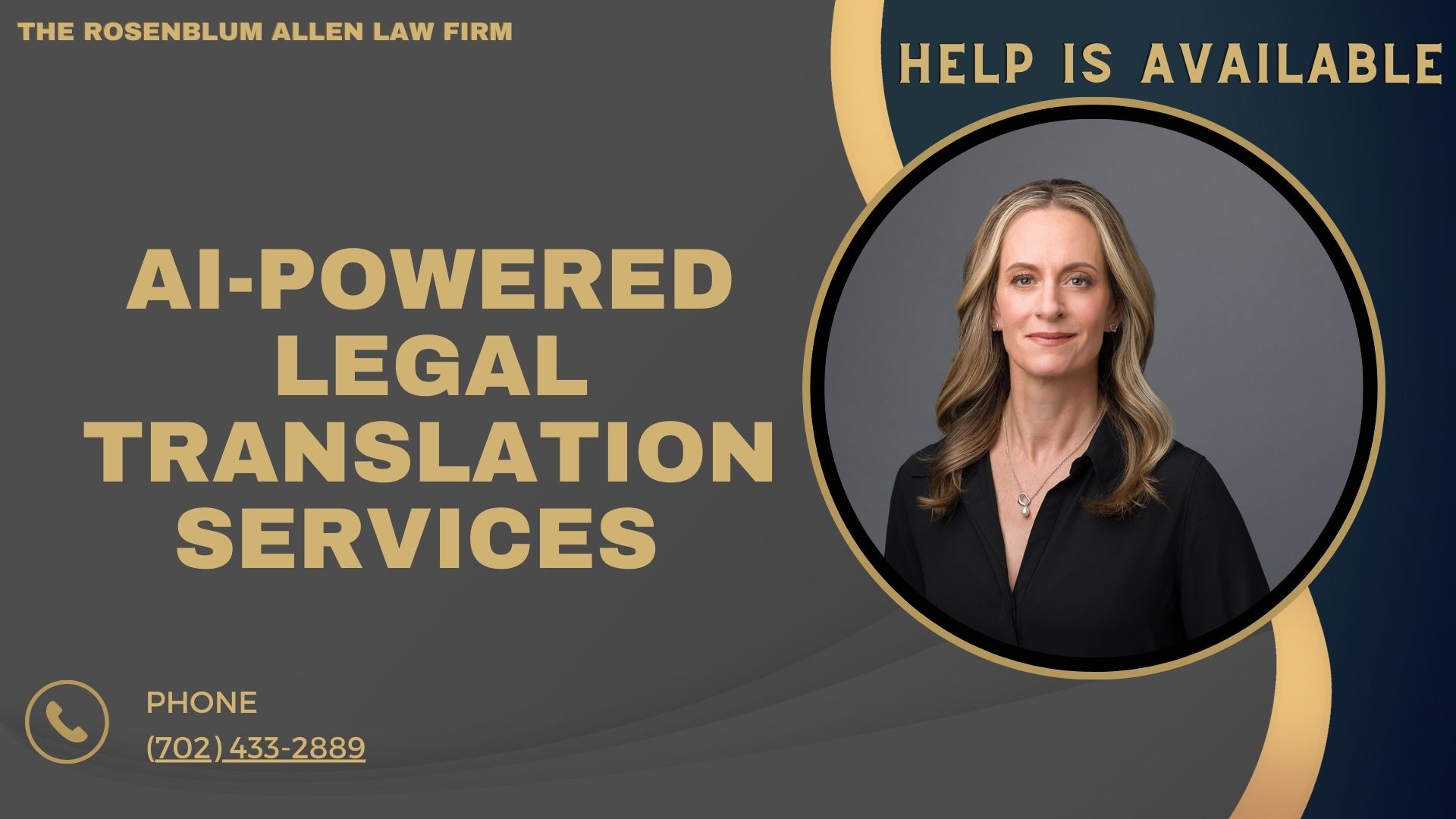Legal Translation AI uses artificial intelligence to translate legal documents, terms, and phrases from one language to another. This technology relies on machine learning and natural language processing to understand and convey the complexities of legal terminology across different languages.
Unlike general translation tools, Legal Translation AI is tailored to handle the nuances of legal jargon and context. It ensures that legal documents maintain their intended meaning when translated.
Importance of Accurate Legal Translations
Legal translations require precision. A slight error in translating a contract, court order, or regulatory document can lead to misunderstandings, disputes, or legal penalties.
Accurate translations:
- Preserve the integrity of legal terms.
- Ensure compliance with laws in different jurisdictions.
- Protect parties from unintended liabilities.
In today’s globalized world, cross-border transactions and multinational legal cases are more common than ever. Reliable translations bridge language barriers, making legal proceedings and agreements accessible worldwide.
The Role of AI in Legal Translation
Artificial intelligence revolutionizes legal translation by automating tasks traditionally performed by human translators. AI tools:
- Translate text faster than humans.
- Improve consistency by avoiding subjective interpretations.
- Handle large volumes of documents efficiently.
While human review remains essential for final quality assurance, AI-driven tools provide the speed and scalability necessary for modern legal needs.
How Legal Translation AI Works
Core Technologies in Legal Translation AI
Natural Language Processing (NLP)
NLP enables machines to understand, interpret, and produce human language. It breaks down text into manageable units, identifies patterns, and ensures translations align with linguistic rules.
Example:
A tool analyzing the phrase “force majeure clause” ensures the translation reflects the legal concept, not just the literal meaning.
Machine Learning Algorithms
Machine learning allows the system to improve over time. By analyzing thousands of legal documents, the AI learns patterns and context, ensuring more accurate future translations.
Neural Machine Translation (NMT)
NMT uses deep learning to provide context-aware translations. It looks at entire sentences, not just individual words, ensuring the meaning remains intact.
For instance, NMT can understand “good faith effort” as a legal principle rather than breaking it into unrelated terms.
Training Data for Legal Translation AI
Legal Text Databases
AI tools are trained on vast libraries of legal documents, including:
- Contracts
- Court rulings
- Statutes and regulations
These databases provide context and examples that help the system learn proper legal phrasing.
Multilingual Legal Dictionaries
Specialized dictionaries and glossaries enhance the AI’s understanding of complex terminology. For example:
- Tort (English) → Responsabilité civile (French)
- Breach of contract (English) → Inadempimento contrattuale (Italian)
Steps in the Legal Translation Process Using AI
Preprocessing Legal Text
Before translation begins, the AI prepares the text by:
- Identifying the document type (e.g., contract, affidavit).
- Highlighting terms requiring specialized handling.
Translation and Contextual Understanding
The AI translates the text while considering the following:
- The legal framework of the source and target languages.
- Cultural nuances that affect interpretation.
Post-Processing and Human Review
Once the AI completes the initial translation:
- Human translators review the output for accuracy.
- Edits ensure the final document meets legal standards.

Benefits of Legal Translation AI
Accuracy and Consistency
Legal texts often involve complex language and specific terminology. Translation errors can result in severe consequences, such as legal disputes or non-compliance with regulations.
Addressing Legal Terminology Challenges
Legal Translation AI excels at handling precise terms and phrases. It recognizes words and their meanings in context, reducing the risk of misinterpretation. For example:
- “Force majeure” is translated as a legal principle, not just “major force.”
- Terms like “indemnity” or “bailment” accurately match their equivalents in the target language.
Maintaining Context Across Languages
AI models trained on legal datasets understand how sentences work together. This ensures that contracts, agreements, and legal opinions retain their original intent when translated.
Speed and Efficiency
Traditional translation methods can take days, especially for lengthy documents. AI significantly reduces this time.
Reducing Turnaround Times
AI tools translate documents almost instantly, allowing legal professionals to work more quickly. This is invaluable for time-sensitive cases, such as responding to court deadlines or international deals.
Supporting Time-Sensitive Legal Matters
Legal Translation AI can process large volumes of text in minutes, ensuring deadlines are met without sacrificing quality.
Cost Savings
Hiring professional human translators for large projects can be expensive. Legal Translation AI offers a cost-effective alternative.
Decreasing Dependence on Traditional Translation Services
While human expertise is still valuable, AI can handle most of the work. Human translators can focus on refining the output and cutting costs while maintaining quality.
Optimizing Resource Allocation
Law firms and companies save money by allocating human translators only where they’re most needed, such as complex legal reviews or unique linguistic challenges.
Enhanced Accessibility
Language barriers can hinder justice and business operations. Legal Translation AI makes legal processes more accessible to diverse audiences.
Supporting Cross-Border Legal Cases
Multinational businesses and international law firms can benefit from AI’s ability to quickly translate documents for multiple jurisdictions.
Bridging Language Barriers in Diverse Communities
Local courts and immigration services can use AI tools to help non-native speakers understand their rights and obligations.

Limitations and Challenges
Contextual Nuances in Legal Texts
AI translation tools, while powerful, still struggle with some challenges.
Cultural and Linguistic Differences
Legal language often reflects cultural norms. For example:
- Property law concepts vary widely between common law and civil law systems.
- In some languages, words like “trust” or “equity” may not have direct equivalents.
AI tools might only fully grasp these subtleties with human oversight.
Complex Legal Jargon
Legal Translation AI may misinterpret specialized terms if they lack sufficient context. For example, “consideration” in a legal contract means something different than everyday use.
Dependence on High-Quality Training Data
Limited Availability of Specialized Legal Datasets
For AI to perform well, it needs access to high-quality data. Legal texts are often proprietary or sensitive, limiting the datasets available for training.
Challenges in Updating and Expanding Training Models
Laws and legal terminology evolve. AI tools need frequent updates to stay relevant, and without current data, translations might become outdated.
Ethical and Security Concerns
Ensuring Confidentiality in Legal Documents
Legal documents often contain sensitive or confidential information. If the AI system is not secure, there’s a risk of data breaches or unauthorized access.
Biases in AI Translation Models
AI systems can unintentionally reflect biases in the data they’re trained on. This may result in unfair or inaccurate translations.

Use Cases for Legal Translation AI
International Contracts
Global business dealings require clear communication. Misunderstandings in contracts can lead to costly disputes. Legal Translation AI ensures that every word is understood correctly, regardless of language.
Drafting Multilingual Agreements
AI tools help draft contracts in multiple languages simultaneously. This ensures that:
- The intent of the agreement is preserved across translations.
- Parties in different countries receive identical legal terms.
For instance, an English-French bilingual contract for a merger will reflect the same obligations and benefits in both languages.
Ensuring Mutual Understanding Across Jurisdictions
Legal Translation AI bridges differences in legal systems. It adapts terminology to suit the jurisdiction, ensuring compliance with local laws.
For example, a U.S. employment contract translated for a French company will use terminology that matches French labor laws.
Litigation Support
Court cases involving multiple languages can be challenging. Legal Translation AI makes this process more manageable.
Translating Evidence and Legal Documents
AI tools quickly translate key evidence, such as:
- Email exchanges
- Contracts
- Statements
This helps attorneys prepare for cases involving international parties or evidence from foreign sources.
Assisting Multilingual Depositions
Legal Translation AI supports lawyers conducting depositions in other languages. Real-time translations help participants understand and respond accurately.
Regulatory Compliance
Staying compliant with international regulations requires translating complex laws and guidelines. Legal Translation AI simplifies this task.
Navigating Global Legal Standards
AI tools help businesses comply with laws in various countries. For example:
- Translating GDPR guidelines for non-European companies.
- Ensuring product labels meet local regulatory requirements.
Translating Compliance Documents for Multinational Corporations
Corporations use AI to translate employee handbooks, policy documents, and safety guidelines, ensuring consistency across global operations.
Immigration Law
Immigration processes often involve translating personal and legal documents. AI tools make this faster and more affordable.
Translating Personal Documents
AI tools accurately translate birth certificates, passports, and other documents required for visa applications. This reduces delays and helps applicants submit complete files.
Supporting Asylum and Refugee Cases
Time is critical for asylum seekers. Legal Translation AI translates applications and supporting documents quickly, ensuring their claims are processed without unnecessary delays.

Choosing the Right Legal Translation AI Tool
Key Features to Consider
Not all tools are created equal. Choosing the right one depends on your needs.
Language Support
Check if the tool supports the languages you need. Some tools excel in specific language pairs or legal systems.
Legal Terminology Databases
A robust tool includes specialized databases for legal terminology. This ensures translations are accurate and contextually appropriate.
Comparing Popular Tools
When selecting a tool, compare performance and usability.
Performance Benchmarks
Look for tools with high accuracy ratings. Some platforms publish benchmarks comparing their AI’s translation quality to competitors.
User Reviews and Feedback
Customer reviews highlight real-world use cases and potential limitations. Look for feedback from legal professionals to gauge reliability.
Advancements in Neural Networks
Neural networks are the backbone of modern AI. They mimic human learning by recognizing patterns in data. Legal Translation AI is expected to become even more precise and versatile as this technology advances.
Future improvements include:
- Contextual Awareness: AI will better understand subtle meanings in legal texts, ensuring greater accuracy.
- Real-Time Processing: Faster tools allow instantaneous translations during live meetings or court proceedings.
- Multilingual Adaptability: A single AI system will handle multiple languages seamlessly without sacrificing quality.
These advancements will make AI tools indispensable for legal professionals handling international cases.
Integration with Other Legal Technologies
Legal Translation AI isn’t evolving in isolation. It’s part of a more significant trend toward digital transformation in the legal field.
AI-Powered Contract Analysis Tools
Contract analysis tools already use AI to review and summarize legal documents. When combined with Legal Translation AI, these tools will:
- Translate contracts and flag discrepancies in multiple languages.
- Ensure compliance with local laws during international agreements.
Automated Legal Research Platforms
Legal research platforms use AI to search databases for relevant case law and statutes. Integrated with Legal Translation AI, these platforms will:
- Translate legal precedents from foreign jurisdictions.
- Help attorneys compare laws across countries for cross-border cases.

Breaking It All Down
Legal Translation AI has transformed how legal professionals work with multilingual documents. It saves time, reduces costs, and ensures accuracy. From contracts to court proceedings, AI tools are making legal processes more accessible and efficient globally.
Closing Thoughts on Adoption and Adaptation
Adopting Legal Translation AI isn’t just a matter of convenience; it’s becoming necessary. As technology continues to evolve, legal professionals will need to embrace these tools to remain competitive.
While AI isn’t perfect, its integration with human expertise offers the best of both worlds. Together, they can bridge language barriers and support a more connected legal system.

Frequently Asked Questions
What is Legal Translation AI?
Legal Translation AI uses artificial intelligence to translate legal documents, terms, and phrases between languages. It ensures accurate and context-aware translations of complex legal texts.
How does Legal Translation AI work?
Legal Translation AI uses natural language processing, machine learning, and neural networks. These tools analyze legal texts, understand the context, and generate translations that retain the original meaning.
What types of legal documents can AI translate?
AI can translate a wide range of legal documents, including:
- Contracts and agreements
- Court rulings and filings
- Regulatory compliance materials
- Immigration documents
- Evidence and deposition transcripts
Is Legal Translation AI as accurate as a human translator?
While AI excels at speed and consistency, human translators are essential for ensuring accuracy, especially with nuanced or highly specialized legal texts. Combining AI with human review provides the best results.
What are the benefits of using Legal Translation AI?
Key benefits include:
- Faster translations
- Lower costs
- Consistent use of legal terminology
- Increased accessibility for cross-border cases
Are there limitations to Legal Translation AI?
Yes, limitations include:
- Difficulty with cultural or legal nuances
- Dependence on high-quality training data
- Risks related to data security and confidentiality
How secure is Legal Translation AI?
Security depends on the platform. Trusted tools use encryption and other measures to protect sensitive data. Always verify a tool’s security features before use.
Can Legal Translation AI be used in court cases?
AI tools can translate evidence, depositions, and other legal documents for court cases. However, human verification is often required to ensure admissibility and accuracy.
Is Legal Translation AI expensive?
AI tools are often more cost-effective than traditional translation services. They reduce reliance on human translators, which lowers overall expenses.
What is the future of Legal Translation AI?
The future includes:
- Improved accuracy with advancements in neural networks.
- Integration with other legal technologies like contract analysis tools.
- Real-time translations for live legal proceedings.

Additional Resources for You from The Rosenblum Allen Law Firm.
Criminal Defense Attorneys
If you’re facing criminal charges, our criminal defense attorneys provide effective representation. They offer a thorough defense to protect your rights and help you navigate the legal system.Las Vegas DUI Lawyer
A DUI charge can have serious consequences. Our Las Vegas DUI lawyers specialize in defending clients charged with driving under the influence, ensuring you receive the best possible outcome.Domestic Violence Lawyer Las Vegas
If you’re involved in a domestic violence case, we offer experienced legal representation to protect your rights, whether you’re the alleged victim or the accused.Drug Possession Lawyer
Facing drug possession charges? Our skilled drug possession lawyers can help build a strong defense, potentially reducing or eliminating penalties.Sex Crimes Attorney
Charges related to sex crimes are serious and require a lawyer with experience in defending such cases. Our attorneys are here to ensure your rights are protected throughout the process.CPS Defense Attorney
If you are facing accusations of child abuse or neglect, our CPS defense attorneys are committed to defending your parental rights and protecting your family’s future.Misdemeanor Lawyer
Misdemeanor charges may seem minor, but they can still lead to significant consequences. Our misdemeanor lawyers work to minimize penalties and defend your reputation.Las Vegas Warrant Defense Attorney
If you have a warrant out for your arrest, our Las Vegas warrant defense attorneys can assist in handling the matter efficiently and work toward clearing your name.Las Vegas Probation Violation Attorney
Violating probation can lead to severe consequences. Our probation violation attorneys will help you understand your options and defend your case to avoid harsher penalties.Theft Crime Defense Lawyer
Whether it’s shoplifting, burglary, or grand theft, our theft crime defense lawyers specialize in providing strong defense strategies to protect you from theft-related charges.Kidnapping Lawyers
Kidnapping charges carry serious penalties. Our kidnapping lawyers are experienced in handling such sensitive and complex cases, working hard to ensure the best defense.Juvenile Defense Lawyers
If your child is facing criminal charges, our juvenile defense lawyers focus on protecting their future by guiding them through the juvenile justice system with care and expertise.Firearms Lawyer Las Vegas
Whether you’re dealing with illegal possession, trafficking, or misuse of a firearm, our firearms lawyers in Las Vegas provide skilled defense to protect your rights.
Each of these services has been created to help guide and defend you during some of the most challenging times. Feel free to explore these links to learn more about the effective legal assistance available to you.

Offsite Resources for You
American Translators Association – www.atanet.org
A comprehensive resource for professional translators, offering certification, tools, and resources for anyone interested in translation services.
ProZ.com – www.proz.com
A platform where professional translators and clients connect, offering forums, job postings, and resources for legal translation professionals.
Globalization and Localization Association – www.gala-global.org
GALA supports professionals in translation and localization, with resources and networking opportunities for those involved in legal translation work.
The Institute of Translation and Interpreting – www.iti.org.uk
A professional body for translators and interpreters, offering accreditation, education, and resources for legal translators.
National Association of Judiciary Interpreters and Translators – www.najit.org
A valuable resource for translators and interpreters specializing in legal proceedings, with tools and information on court-related translation needs.
AI for Good Foundation – www.aiforgood.org
A nonprofit that promotes the use of artificial intelligence to benefit society, including applications in translation and legal technologies.
Global Translations – www.globaltranslations.com
Specializing in translation and localization services, Global Translations offers expertise in legal translation and other industries, providing access to a range of language services.

A Special Message from Our Lead Attorney, Molly Rosenblum Allen, Esq

Dear Reader,
Thank you for taking the time to explore these resources. I hope you’ve found the information helpful and insightful as you navigate your legal journey.
At The Rosenblum Allen Law Firm, my team and I are here to provide the effective guidance you need. If you’re ready to move forward or have any questions about how we can assist with your situation, I invite you to give us a call at (702) 433-2889. We’re here to help you every step of the way.
Best regards,
Molly Rosenblum Allen, Esq.
Lead Attorney, The Rosenblum Allen Law Firm






